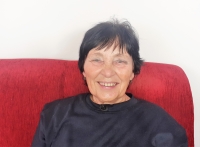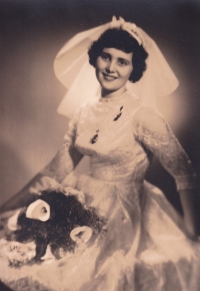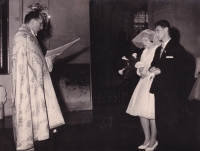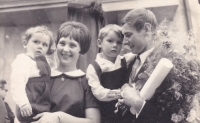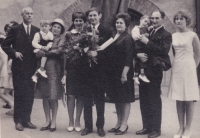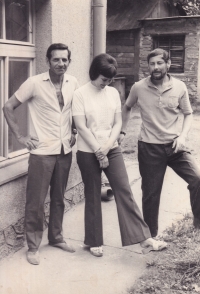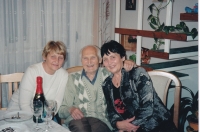People do not feel like singing any more

Stáhnout obrázek
Věra Houšková, née Řezáčová was born on 1 June 1941 in the village of Nová Brázdim in the family of Václav Řezáč, owner of a prosperous brickworks. Although it was nationalised after the events in February 1948, the father could stay there working as a manager for several more years thanks to his expertise and popularity among employees. His work was ended because of an unfounded accusation of sabotage. Despite her “problematic” origin, the witness was admitted to study at the School of Economy in Resslova Street in Prague and when she graduated from it, she worked as an accountant. The family moved to Jílové u Prahy where Věra Řezáčová got married to Jan Houška in 1961. Her husband was under dramatic circumstances shortly arrested as a counter-revolutionary by the Soviet Army in August 1968. She and her husband worked in the hospitality industry since the 1970s. At the time of recording in 2022, she lived with her family in Jílové u Prahy.
